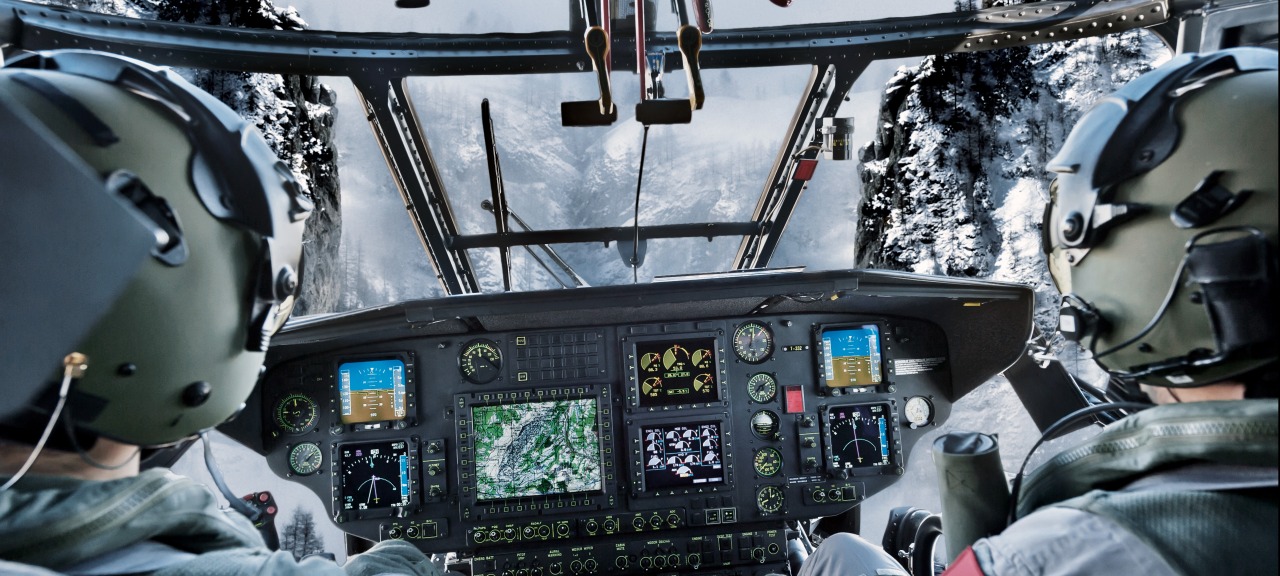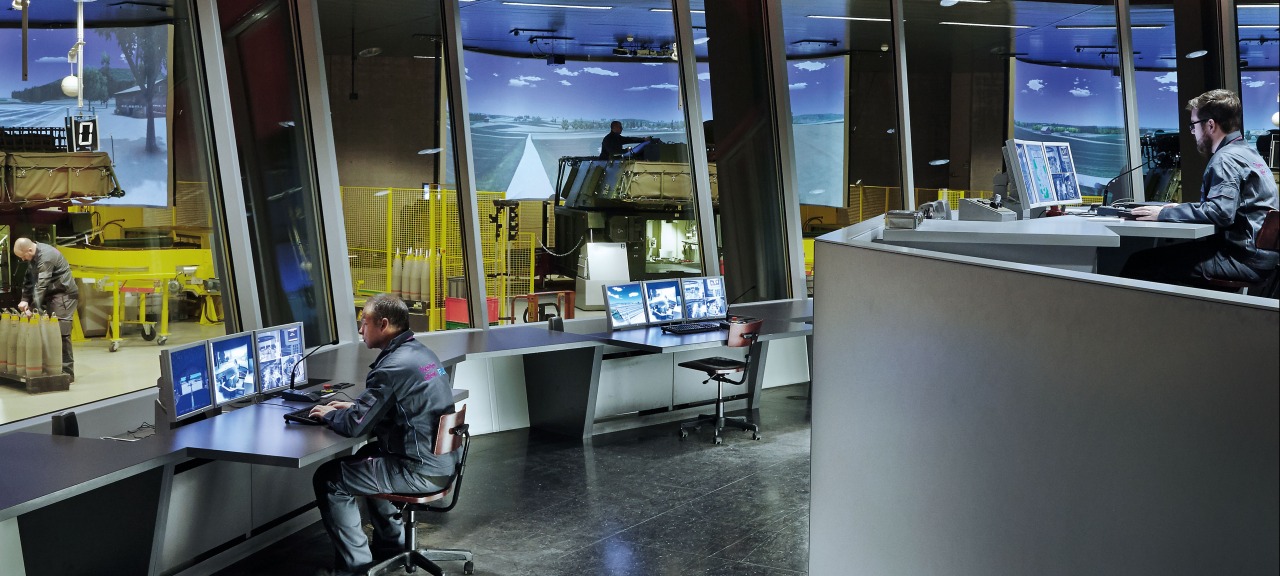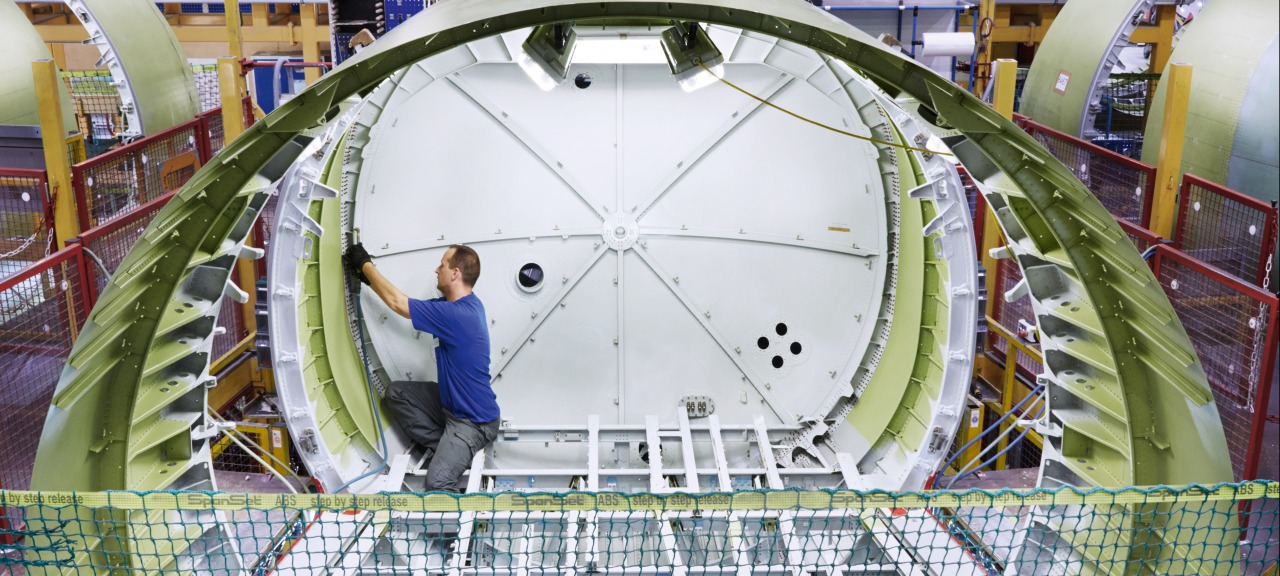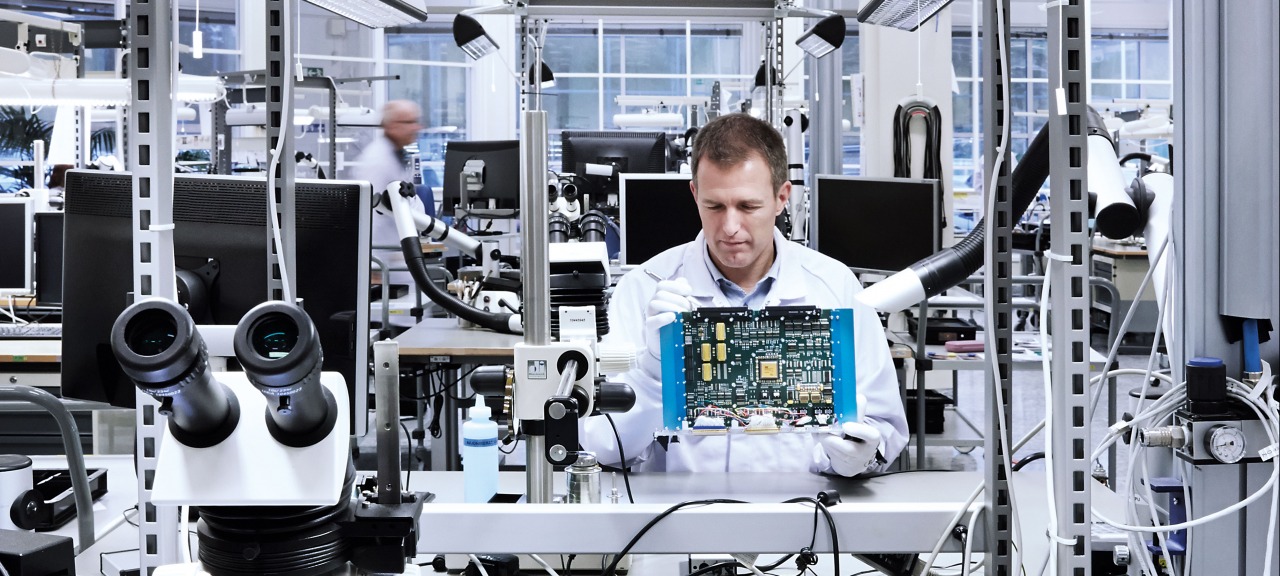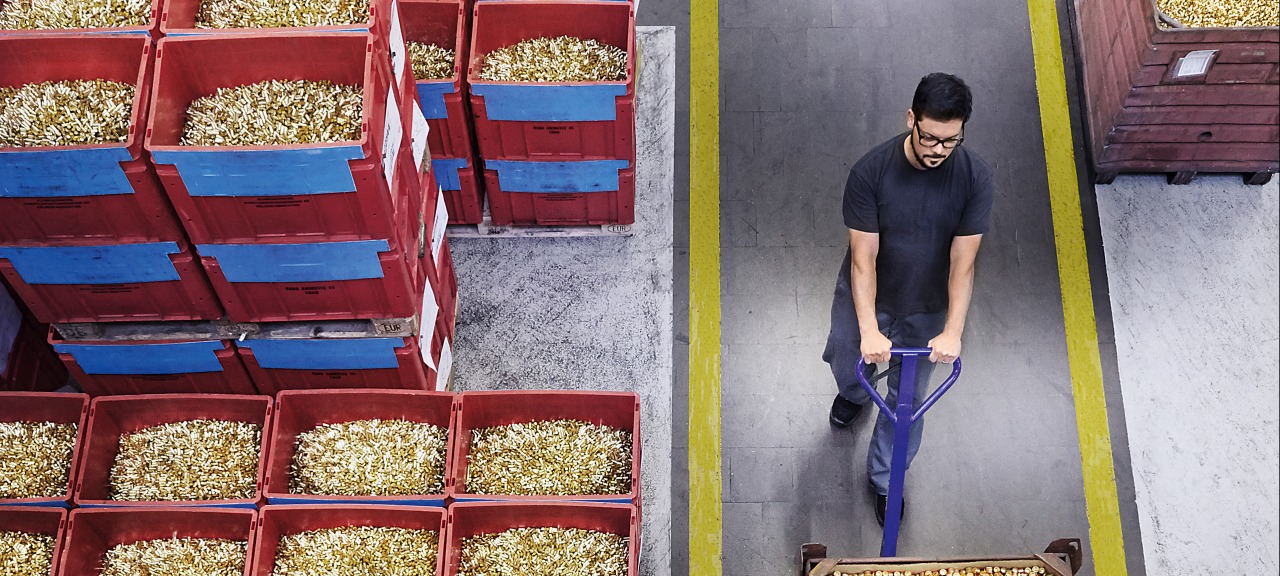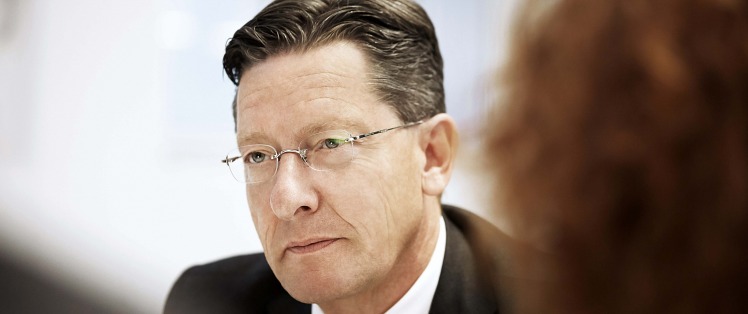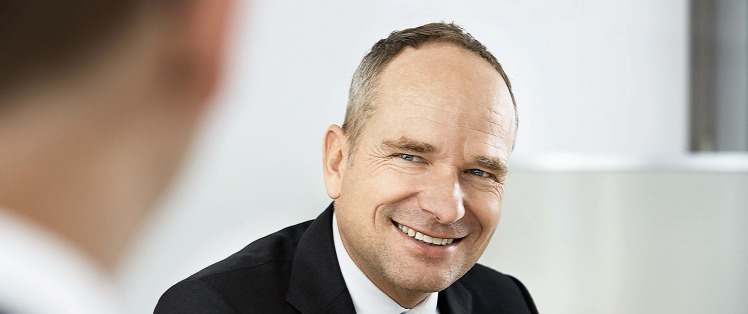On a sustainable, profitable growth trajectory
Business success is the result of a systematic focus on specific core Competencies and on pursuit of international growth opportunities by all divisions....
Dear shareholder,
customers and readers,
In business terms, 2016 was a very successful year for RUAG. Both sales and EBIT reached new highs. With record new orders of over CHF 2 billion greatly exceeding sales, the foundation has been laid for profitable growth in the coming years. But global competition is not the only challenge RUAG has faced. A cyber attack discovered at the beginning of the year revealed that even an enterprise that is committed to protecting itself properly can become a victim of hackers. The incident drew much consternation among customers, the general public and the political leadership while raising many internal questions about issues that had not previously appeared to present a problem.
For our most important customers, but especially for our employees, the “RUAG Continued Development” project assigned by the Swiss Federal Council to the Department of Defence, Civil Protection and Sport (DDPS), the RUAG Board of Directors and the Federal Department of Finance (FDF) at the beginning of 2015 is a top priority. Various partial privatization scenarios are to be presented to the Federal Council in 2017. The project is essential for the further implementation of RUAG’s strategy, for Switzerland’s defence industry and for RUAG jobs in Switzerland. Only the necessary entrepreneurial freedom will enable RUAG to continue meeting the current owner’s expectations to the benefit of Switzerland’s security.
Compliance requirements for enterprises with an international orientation are becoming ever more demanding. This is certainly the case for RUAG. Following an analysis of the current situation, RUAG’s Board of Directors has initiated the “Integrity@RUAG” project. Its objective is to strengthen the culture of integrity throughout the Group. It aims to build on the existing high standards and progressively strengthen and upgrade the current organization.
Investments in defence technology are very difficult under the current circumstances. This is primarily due to the large number of international conflicts, further restrictions on Swiss exports of defence-related goods and the federal government’s practice of primarily procuring armaments “off-the-shelf”, i.e. without a Swiss development component. To maintain a technology base in Switzerland in spite of all this, RUAG’s strategy chiefly focuses on bolstering the three growth pillars of aerostructures, commercial space travel and cyber security. In all three areas, the first steps have been taken on important new paths for the future.
The international expansion is also benefiting the Swiss labour market. Approximately 110 of the additional jobs were created in Switzerland.
By winning contracts for the pioneering new OneWeb space project and forming a new Cyber Security business unit, RUAG has established itself in lucrative sub-markets of the global digitalization megatrend. Moreover, the partnership with Airbus has been expanded and secured for the coming years with a new framework agreement. This puts RUAG in a position to help meet the world’s growing mobility needs.
The growth in headcount reveals that RUAG’s international expansion is also benefiting the Swiss labour market. The number of employees in 2016 grew by 571 to reach a total of 8734, and some 110 of the additional jobs were created in Switzerland.
Positive results in the divisions
RUAG Ammotec once again achieved significant sales growth. The main driver was the hunting and sport segment, which saw further expansion of market share, especially in Europe and the United States. The development of proprietary wholesale structures had a positive impact.
The Space division took some key strategic steps in 2016. First, important contracts were concluded with OneWeb, the world’s biggest satellite project. These demonstrate that the division remains a competitive player in the “new space” segment. The second step was the building of two production centres in the United States. Carbon fibre structures for Atlas V and Vulcan launch vehicles will be produced in Decatur, Alabama, and satellite structures for the OneWeb project will be built in Cape Canaveral, Florida. The third step was the complete acquisition of the technology firm HTS, giving RUAG Space a production site in the important German market. The fourth strategic step was the sale of the scientific instruments and optical communications business to Thales Alenia Space, further tightening the focus on selected assemblies for satellites and launch vehicles and on commercial space ventures.
The Defence division prevailed over well-known international competitors in a tender process to operate the combat training centres of the Swiss Armed Forces. This extremely important success, together with a major new order from the French Ministry of Defence, will bring new drive to the Simulation and Training business unit. The Swiss Armed Forces’ procurement of 32 RUAG COBRA mortar systems opens further longterm prospects. Development of the newly formed Cyber Security business unit is of key importance for the future of the entire Group. Data security is one of the growth areas in which RUAG is taking a part in the digital transformation of the worldwide economy. At the beginning of the year RUAG was itself confronted with an attack. The company was able to draw valuable technical and organizational lessons from a detailed analysis of the incident, undertaken in collaboration with MELANI, the Swiss federal government’s cyber-security centre. The results are now being applied internally. The innovative Cyber Training Range infrastructure got off to a promising start in 2016. Over 30 tailored security training exercises were undertaken with companies and government organizations during its first year of operations.
For the Aerostructures division, the conclusion of a five-year contract to deliver rear fuselage sections for the Airbus A320 family was a major pointer to the future. Potential orders are put at several hundred million Swiss francs. One important reason for the choice was a RUAG-owned production facility in Hungary. Airbus approved production of the first batch of components less than 12 months after the Board of Directors decided to proceed with the project. The new production site in Hungary will have a positive impact on the division’s long-term profitability.
For the Aviation division, acquiring the contract to maintain key components of the F-35 multi-purpose fighter was a key feature of the past financial year. Since the competition was organized by the F-35 Joint Program Office in the United States, the consortium of which RUAG Australia is a member is now the service centre for all F-35s in the Asia-Pacific region. Major upgrade projects for the Swiss Air Force's F/A-18 fighters as well as their transport helicopters and PC-G aircraft also proceeded on track. The suspension of the BODLUV MR ground-based mid-range air defence procurement programme, on the other hand, was a setback.
Investments in three growth areas
Among the activities to secure profitable growth in the years to come, the investments in the strategic growth areas of aerostructures, commercial space ventures and cyber security are particularly noteworthy.
In Aerostructures, the new five-year agreement with Airbus and participation in the Airbus SCOPE+ cost reduction programme provides a foundation for the development of new manufacturing technologies. Efforts will focus on further automation of assembly processes and implementation of hybrid structures for new aircraft programmes.
The objective of the Space division’s investments is to further secure its market position in the commercial space sector. This includes research and development partnerships. The key technology for automated series production of 900 satellite structures for the OneWeb project, for example, was developed jointly with the University of Applied Sciences and Arts Northwestern Switzerland. Construction of two production facilities in Decatur (Alabama) and Cape Canaveral (Florida) will allow further expansion of business in the United States and advance RUAG’s participation in the commercial communications satellite boom. Demand for satellite communications will rise sharply with digitalization of the economy, especially the advent of the Internet of Things.
The Defence division’s investments in the new Cyber Security business unit and in communication systems to link organizations in emergency situations also have much future potential. In ARANEA, for example, RUAG has brought a communications system for seamless voice, video and data communication among all different digital and analogue devices to a state of field readiness. This will enable a broad range of civil and military organizations to communicate instantly with one another in the event of an emergency. As the cyber attack on RUAG has demonstrated, even the most modern security precautions and top-notch security expertise cannot guarantee 100% invulnerability. This experience has reaffirmed the Executive Board’s conviction that cyber security is becoming an indispensable building block in the digitalization of the global economy. The previously planned expansion of activities has therefore been accelerated. The purchase of the globally active British data security specialist Clearswift and successful commissioning of the Cyber Security Range mark important first steps.
Outlook
RUAG again anticipates solid growth in 2017. However, this growth will most likely occur primarily in the civil market and outside Switzerland. And yet this positive outlook also represents a challenge. On the one hand, order books are full and growth prospects strong in most of the Group’s relevant markets. On the other hand, the Swiss Confederation’s appetite for risk as RUAG’s owner is limited and the straitjacket of regulatory requirements for enterprises such as RUAG that are closely linked to the federal government is growing ever tighter. Conduct that is not only legally but also ethically impeccable is essential for RUAG. The position of Vice President for Compliance & Risk Management, newly created in 2017, will among other things be responsible for building a state-of-the-art compliance management system focusing on combating corruption and dealing with antitrust law and conflicts of interest.
We are pleased with many of the signals we are seeing from the markets. Airbus’s order intake in 2016 was greater than deliveries, suggesting further growth to come in aerostructures. As the digitalization of the economy gains momentum, demand for satellite communications is increasing. The same is true of cyber security solutions. The Ammotec division’s Hunting & Sport segment is continuing to count on growth in Europe as well as in the USA, the world's largest market for ammunition. Likewise, defence spending worldwide is likely to grow further given increasing geopolitical uncertainties. It should be kept in mind, however, that the growing number of local conflicts is disadvantageous for RUAG as ever more countries are subject to Swiss export restrictions – and this is not the case for the numerous competitors in the defence industry.
RUAG now generates over 80 % of sales in open competition.
Worldwide uncertainty factors also include the exchange rate situation. Here RUAG has taken a robust position. Having production sites in a total of 14 countries allows for natural currency hedging. A solid base also exists for continual productivity gains, which remain absolutely essential in the coming years. Productivity enhancement was permanently established as a priority in all business units through efforts to master the exchange rate shock of 2015.
In the Swiss domestic market RUAG faces uncertainties. The halting of BODLUV MR in 2016 meant that, after the electorate had rejected the procurement of a new fighter plane, another major project had been suspended. Moreover, the Swiss Armed Forces procurement system is being fundamentally reorientated towards standard systems. This eliminates the development orders by which RUAG has until now been able to build key foundations in new technologies and products for the international market.
The RUAG Continued Development project is of fundamental importance for the Group. The project must resolve the contradiction between ever fiercer global competition and growing domestic regulatory requirements. RUAG now generates over 80 % of sales in free competition, and must prevail over competitors even for a good third of orders for the Swiss Armed Forces. The Board of Directors and Executive Board are strongly committed to seeking a solution together with the owner and other stakeholder groups which will create optimum conditions for the future of the Swiss Armed Forces as well as for the Swiss jobs market and for RUAG.
The manner in which RUAG has achieved the transition to sustainably profitable growth in the year under review makes us extremely confident. Our shareholder has had a major hand in this, as have our customers, partners and staff. Thank you for your loyalty and your trust as well as for the opportunity to work with you and for your dedication. We look forward to leading RUAG into a successful future together with you.
RUAG Holding AG
| sig. Hans-Peter Schwald Chairman of the Board of Directors |
sig. Urs Breitmeier |
